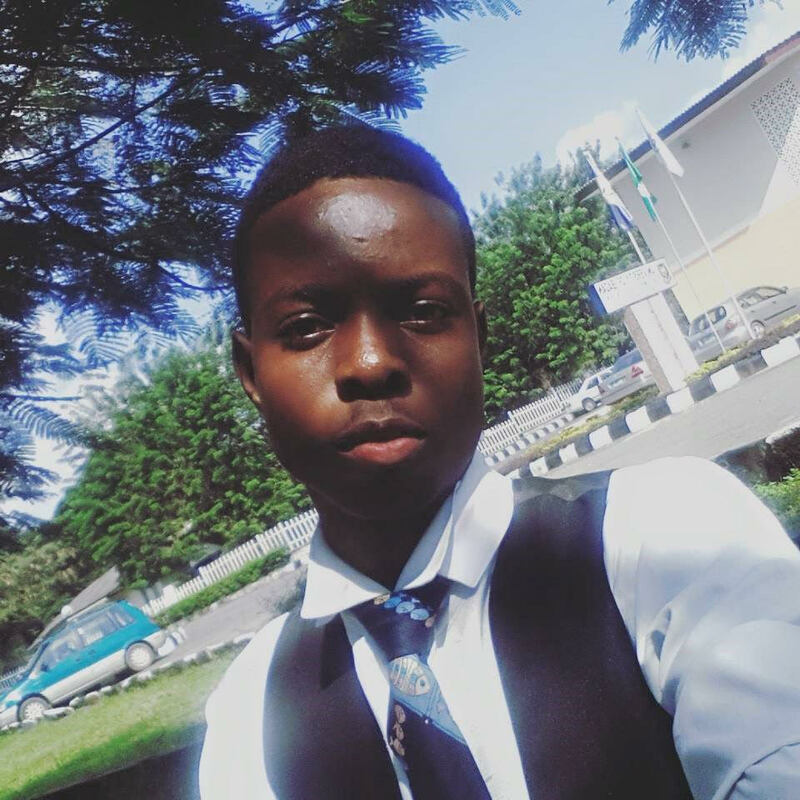the book of jacob II //
or explaining the birthday paradoxto my little cousinBy O-Jeremiah Agbaakin
|
|
"O Lord, don't speak to me of restraint" Leila Chatti
in a different time the lines on my palm
are cave markings which means my body is ancient which means i had come before the snake brought language the hieroglyph is saying unlearn everything you know of time and its amniotic push once i dropped a coconut & watched its small skull splinter on the floor water gushing like remission was it an accident that later a penknife cut my palm as i skinned it my blood on my own hand with warm (coconut) water? in a different time the hieroglyph is saying be careful of big doors to very big places that only open to the inside like the arms of love or a cathedral black boy have you ever been here in the time of war? what do you know of the war in your body? i come from a town with one door open the others closed to strangers like a ribcage i knock even as my God now seems open like jacob trolling an angel all my life have I not worshipped all my fears enough? in the veranda our parents' mother knows many ways to make love to God & with a stool stops you from joining at catechism they said virginity is the only origin of God that the manger boy is also the father to the (wo)man they are both about two thousand years of age now do you think it all makes sense now? towing // or the book of isaac IBy O-Jeremiah Agbaakin
i.
why does every place that i go to end up swallowed inside me like a map? i should warn you that this journey may end up as a poem afraid of its deity ii. black boy were you not named after your inertia? they say the fire dances. the fire dances all around the house yet my legs are the walls that never ran iii. father sulks on the tough goat skin love of his own father's prayer mat: his body towed back to the dust & left to rust like a car unclaimed in a garage of graves iv. the shy knife left a love bite on my neck when God spoke in falsetto as the pigeon panics in a house fire before diving into safety from the adage's bolted mouth v. at a clinic the nurse says stab and prick are never the same but leaves my arm bloodied at the end. i do not know when to disagree with my own silence vi. the road before us spills into sullen dirt & absent trees spaced like rivalry a van stood wounded by the roadside "imagine how free this country can be" vii. the man child besides me whines again "if you tow all the vehicles?" I ask. we fall silent as the tow van stood stranded by the roadside like a hypocrite a thesis on language (abstract)By O-Jeremiah Agbaakin
the first word[1] from your mouth has no/ language. onomatopoeia is a miracle here./ how else did father dig something/ the sound of a gun as your first birthday gift?/ curiosity never killed my cat/ that knows how to leap like tongue/ tucked inside two mouths./ blood is the only language that never truly dies./ cite abel in the ground[2]./ i know how to derail a whiteman's tongue./ i know how to borrow words with both eyes /and ears. that's how mother embalms the stories rotting/ inside the gourd of memory. this is how we lose memory:/ the words go away first/ in a land where cockcrow[3] is mnemonic for timing./ do you remember how you vowed to follow your yoruba/ loosely tethered to your tongue?/ how you later disclaimed both melanin/ and your faith/ and your skin- more than thrice.
[1] John 1 [2] Genesis 4 [3] Mathew 22 genesisBy O-Jeremiah Agbaakin
(for the Buni Yadi boys, 2014. Nigeria.)
1.in the beginning, there was a wound
2.and the wound was without form 3.and God covered the wound with a frail armor of scar 4.and god said forgive or forget if it's too hard to pull both tricks 5.in every poem my father is another word for writer's block 6.the house is the night of a love poem—a caesura clogs the veins of every attempt at speech so that when you poke a word with a fork, there's no blood 7.and i left my poem for it was not good 8.on the second day, god said there must be rhythm 9.even if it takes guns buzzing in a high school corridor 10.and you call the rhythm god. is the war(god) not enough god with us? 11.on every other day, you said let there be hyperbole—to enlarge what's left of seeing & believing 12.and words like omni descended like snow on a desert 13.as a freshman, my Classics professor said omni is the root word for all 14.do not tempt me to call god a pedophile—if there are boys moaning on a bed of fire in Buni Yadi into a surrender of ash and silence O-Jeremiah Agbaakin was born in 1994 in Osun, Nigeria. He holds an LL.B (Law) degree from the University of Ibadan. His literary works are forthcoming/published in diode, the Brooklyn Review, OBSIDIAN, Sierra Nevada Review, StepAway Magazine, and elsewhere. A finalist in the 2017 Korea-Nigeria Poetry Contest, he has been nominated for the Pushcart Prize and the Best of the Net Award. He is the Submissions Editor for Dwarts Magazine and a poetry reader for PANK Magazine.
|

